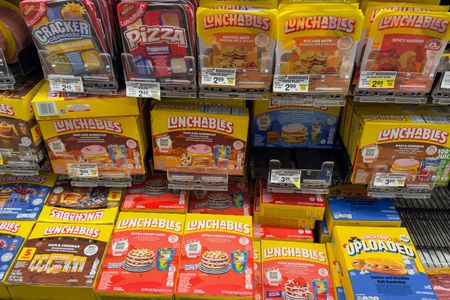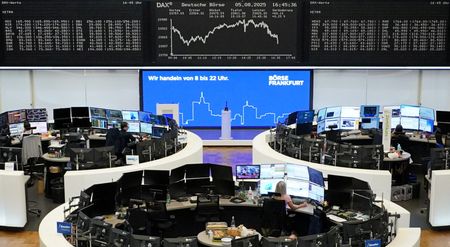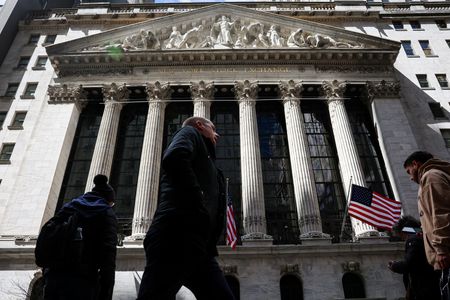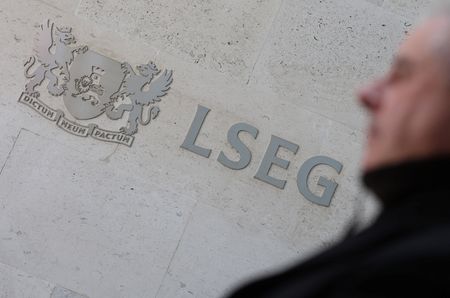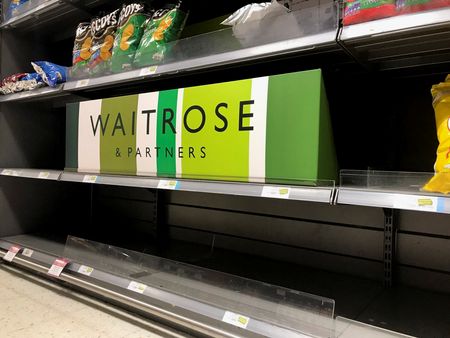By Savyata Mishra
(Reuters) -Kraft Heinz will split into two companies, one focused on groceries and the other on sauces and spreads, it said on Tuesday, dismantling a packaged goods giant that never achieved the growth expected when it was formed a decade ago.
The spinoff, which is expected to close in the second half of 2026, is the latest in a series of rearrangements among major global consumer brands that once embraced the conglomerate model, but are now rethinking their business structure amid sluggish sales, depressed valuations, and tariffs.
Wall Street had anticipated the breakup after the company said in May it would look for opportunities to boost shareholder value. Still, investors reacted negatively, with Kraft Heinz shares down 6% in morning trading, amid a broader-market selloff.
The 2015 merger that Warren Buffett’s Berkshire Hathaway helped engineer alongside Brazilian private equity firm 3G Capital was created with a goal of cutting costs and boosting growth in iconic brands such as Heinz beans, Jell-O and Philadelphia cream cheese.
It hasn’t worked, as shares have lost about 60% of their value in that time as consumers reined in spending, particularly in the wake of the COVID-19 pandemic.
Buffett told CNBC on Tuesday he was “disappointed” in the split.
The merger did not turn out to be a brilliant idea, but taking the company apart will not fix its problems, he said.
Berkshire last month took a $3.76 billion write-down on its 27.4% stake in the company.
“The complexity of our current structure makes it challenging to allocate capital effectively, prioritize initiatives and drive scale in our most promising areas,” said Miguel Patricio, executive chair of the Kraft Heinz board.
The company reported $9.3 billion in impairment losses in the second quarter due to the sustained decline in its share price and market value.
“For investors, the move could unlock value in the near-term but the execution risks are clear: unless both entities invest in innovation and defend against private-label encroachment, the breakup may not achieve more than a temporary financial lift,” Emarketer analyst Suzy Davidkhanian said.
LESS COMPLEX
The split would help “allocate the right level of attention and resources to unlock the potential of each brand,” Patricio said on Tuesday.
The split creates one firm focused on sauces and spreads such as Heinz, Philadelphia and Kraft Mac & Cheese, which had sales of about $15.4 billion in 2024. The other would consist of processed foods and ready meal brands including Oscar Mayer and Lunchables that had about $10.4 billion in annual sales.
The grocery unit will be headed by Kraft Heinz’s current top boss Carlos Abrams-Rivera, while the company seeks potential CEO candidates for the sauces unit.
“We remain skeptical that this separation alone will help the individual companies,” BNP analyst Max Gumport said, noting the challenges underpinning the poor performance could take many years of investment and improvement to overcome.
The company expects the split to cost up to $300 million but anticipates reducing much of that expense quickly.
Last week, U.S. soft drinks giant Keurig Dr Pepper announced an $18 billion takeover of JDE Peet’s that will result in a split of the merged entity’s coffee operations and other beverage businesses into two separate publicly listed companies.
(Reporting by Juveria Tabassum and Savyata Mishra in Bengaluru; Additional reporting by Sukriti Gupta; Writing by Aishwarya Venugopal; Editing by Sriraj Kalluvila)

